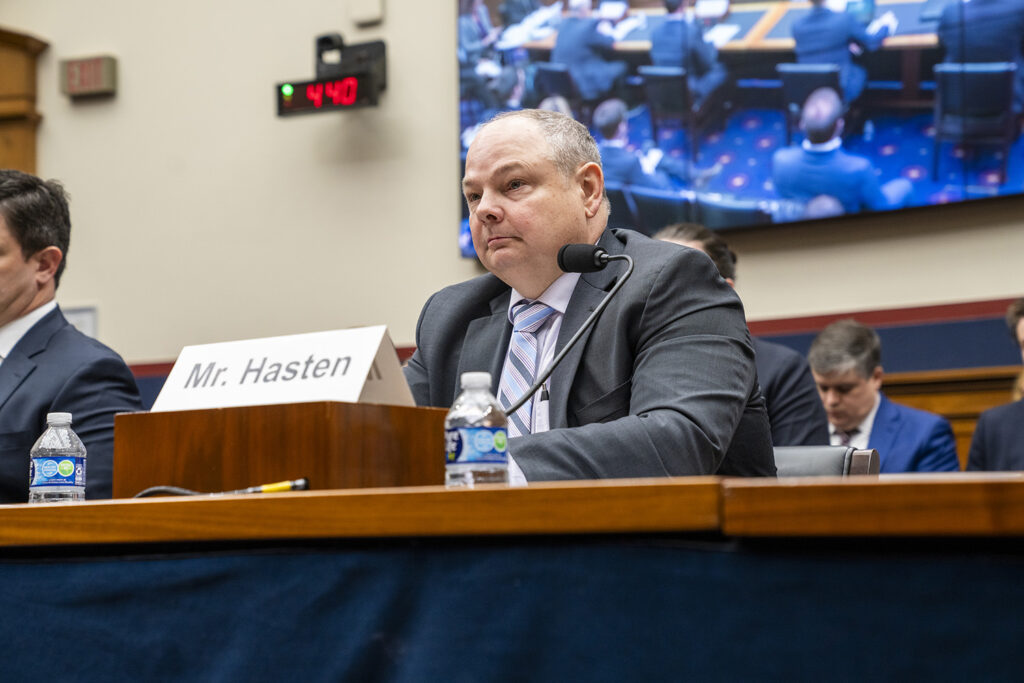
Electric cooperatives want Congress to help streamline Clean Water Act permitting programs to ease their ability to build and maintain critical infrastructure, an Arkansas co-op leader told House lawmakers on Tuesday.
“It is essential that federal permitting programs—including those under the CWA—are implemented as intended by Congress and do not unnecessarily delay or hinder critical infrastructure projects essential to delivering electricity to homes, businesses and farms across the country,” said Vernon “Buddy” Hasten, president and CEO of Arkansas Electric Cooperative Corp./Arkansas Electric Cooperatives Inc.
Hasten represented NRECA and AECI at a House Transportation and Infrastructure subcommittee hearing on Clean Water Act permitting and project delivery.
Co-ops, which are owned and governed by their consumer-members, are committed to protecting and maintaining clean water within their communities, Hasten said. But that goal “is not and should not be mutually exclusive with having CWA permitting programs that are reasonable, efficient and meet the needs of our growing and ever-changing economy,” he told the House panel. “Congress can and should address the difficulties that the regulated community is facing with permitting under the CWA.”
In his prepared remarks, Hasten said Congress must ensure that the Army Corps of Engineers promptly reauthorizes Nationwide Permits that allow co-ops to build and maintain power lines and manage vegetation along utility rights of way. NWPs authorize activities that have minimal adverse effects on the aquatic environment. The permits are issued for a period of five years.
Hasten said it took nine months for Little Rock-based AECC to completely go through the permitting and review process to receive temporary construction authorization for repairs to one of its hydropower plants.
He went over other permitting hurdles that electric cooperatives face, including when they pursue Rural Utilities Service loans. Hasten also noted lengthy timelines to determine which projects require CWA permits and urged the Corps and EPA to revise their “waters of the U.S.” regulations defining what waters are federally protected.
Permit delays can result in added costs that “are passed directly on to co-op consumer-members,” Hasten said.
Some of these challenges are addressed in the Creating Confidence in Clean Water Permitting Act, which the House passed last Congress.
Hasten urged support for those provisions and other legislative proposals that streamline CWA permitting processes, reduce delays and provide greater certainty for project developers.
Co-ops “look forward to working with members of the committee to advance policies that will result in a more reasonable and efficient CWA permitting process,” he said.
Molly Christian is a staff writer for NRECA.